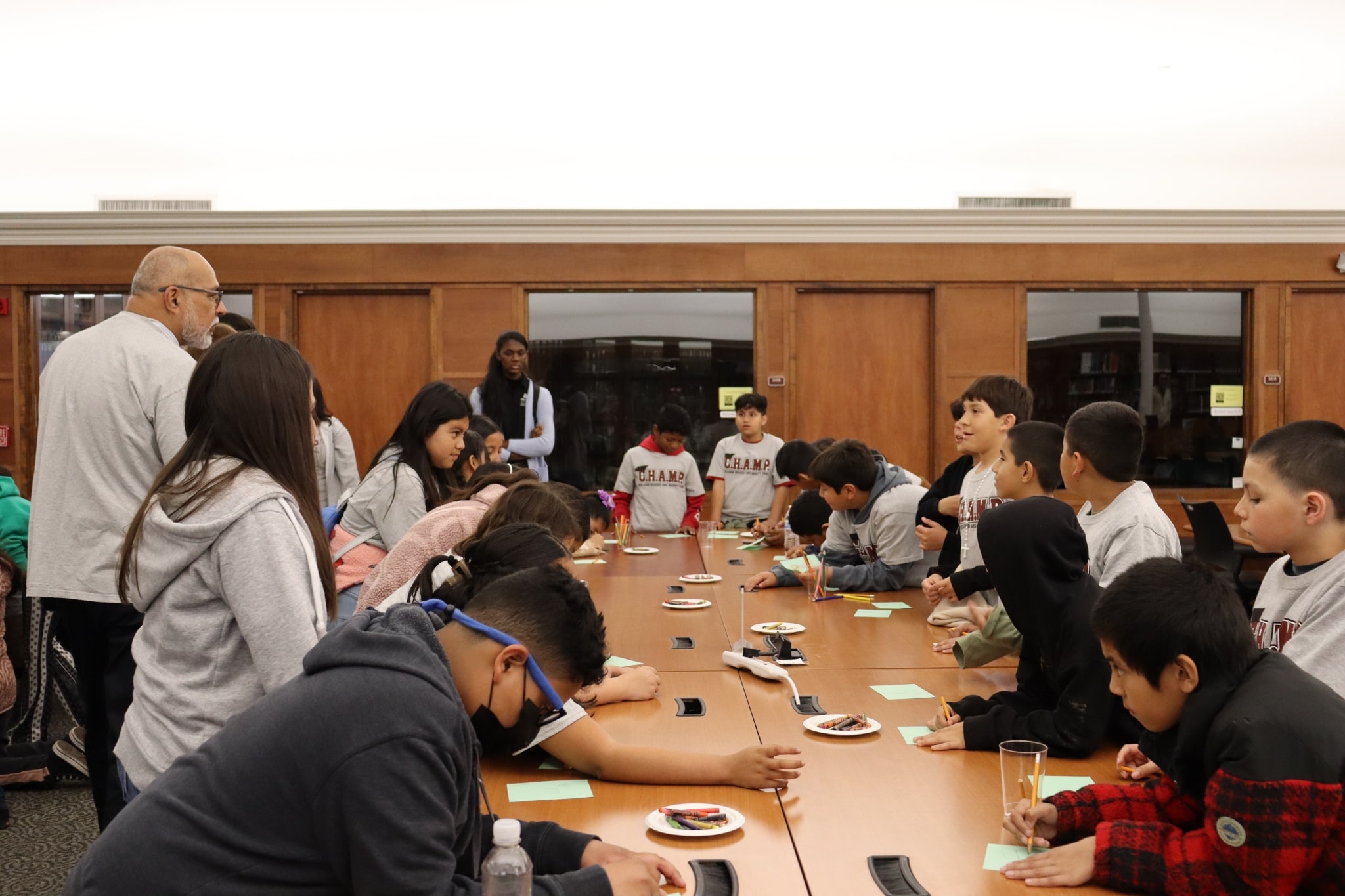
Service-Learning Programs
- Home
- >
- Center for Community-Engaged Learning
- >
- Academic Service-Learning
- >
- Service-Learning Programs
Contact Information
Email: [email protected]Phone: (626) 815-6326
Hours
Monday–Thursday, 8:30 a.m.-5 p.m.Friday, 8:30 a.m.-4:30 p.m.
Location
Building 22Related Links
Center for Community-Engaged LearningFaculty across disciplines recognize that learning deepens through hands-on activities, interaction with community members, and applying classroom learning to meet the needs of others. During the 2023-24 academic year, 38 APU faculty employed academic service-learning in 92 course sections across 25 departments throughout the university, for a total of 1,702 student placements with 200 community partners resulting in more than 24,475 hours of service to and engagement with the local community.
Academic service-learning at APU empowers students with a commitment to high-quality service opportunities directly tied to scholarship, thus advancing the objective of postgraduation employability.
Some of our most significant partnerships in service-learning that allow the university to contribute most to the community are with local K-12 schools, private and public. Through service-learning courses, our students have the privilege of working with schools in the Azusa Unified School District, with private schools in the city of Azusa, and with neighboring cities and school districts.
In addition to local school districts, other sites served by the highlighted programs include Neighborhood Homework House, Elizabeth House, Foothills Pregnancy Resource Center, Redeeming Love, The Let It Be Foundation, Mt. San Antonio Gardens, Oak Tree Lodge, the Department of Children and Family Services, and North Valley Caring Services, to name just a few.
COMM 230 Small Group Communication
Students in this course are assigned to small groups that take on action enterprises (e.g., fundraisers, special events, improvement projects) that significantly benefit local organizations to bring about relevant change in the community; perform some type of community service; conduct training workshops; etc. This course worked with 10 community partners over this past year, providing real benefits to the community while enabling students to learn about small-group dynamics.
EDLS 405 Diversity in the Classroom
Since 1991, the C.H.A.M.P. (College Headed and Mighty Proud) Program has impacted the lives of 12,757 elementary school students in the Azusa Unified School District. Students in the Diversity in the Classroom course lead small groups of local fourth graders through a curriculum meant to introduce college to the students, working through topics such as majors and careers, financial aid, and college admission. This program includes a visit to APU and a special graduation where parents, teachers, students, and principals are invited to APU to celebrate together.
JOUR 300 Editing
Students in this course work with junior AVID students at Azusa High School to help the students edit and revise a major writing project. APU students apply knowledge they have learned in their editing class to help the high school students become better writers. They spend time building rapport with the students and one-on-one time editing their material.
PUBR 300 Public Relations Management
Students in this course carry a public relations campaign through the entire four-step process of research, program planning, implementation, and evaluation, learning to critically examine situations faced by organizations and how those organizations handled those situations through public relations efforts, preparing the students to enter professional life as creative strategists. In spring 2018, APU students worked alongside North Valley Caring Services in Los Angeles.
SOCW 310/311 Human Behavior and the Social Environment
The Cougar Pals program links Azusa Pacific University students in SOCW 310/311 with middle school students from the Azusa Unified School District. APU students act as mentors to students who have been identified by their school counselors as needing encouragement, motivation, or academic assistance. AUSD students may be referred due to ongoing academic difficulties, self-esteem problems, problems at home, friend issues, or being new to their school.
UNRS 384 Urban/Rural Health
Nursing students and faculty have the opportunity to serve the Los Angeles Skid Row homeless community every spring semester. In class, students learn about urban Los Angeles and the complex health challenges experienced by the 58,000 homeless in Los Angeles County. During a street-based health fair, for example, students witnessed and helped alleviate some of these issues first-hand, providing foot washing, shoulder massages, and wound care. Students also collaborated with a local community clinic, the Center for Community Health, to ensure that clients received a follow-up appointment and medical care. Urban/Rural Health nursing students from Azusa and the High Desert Regional Campus were able to share their clinical skills and Christ’s love with one of the most underserved populations in Southern California.
The C.H.A.M.P. program is a service-learning experience for APU students enrolled in EDLS 405 Diversity in the Classroom, integrating practical site experience of diversity in elementary school settings into the college classroom. This education course is designed to engage prospective teachers with issues such as race, culture, gender, ability, and wider social forces that affect traditional success and failure in the education setting.
Each semester, APU partners with all elementary schools from the Azusa Unified School District (AUSD), assigning APU students to classrooms at the designated school sites to serve as college mentors to groups of 5-7 fourth-grade students. The APU students facilitate activities that correspond to the C.H.A.M.P. curriculum, covering such topics as college admission, financial aid, and career exploration.
The C.H.A.M.P. program has been a partnership between APU and the AUSD since 1991. Academic Service-Learning works to ensure that the program is mutually beneficial, reliably structured, and of the highest quality, with the overarching goal of providing faculty and students with meaningful service opportunities in the community that directly relate to the academic material and learning objectives of each course.